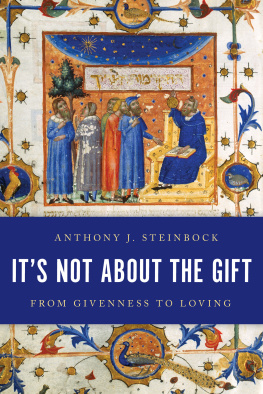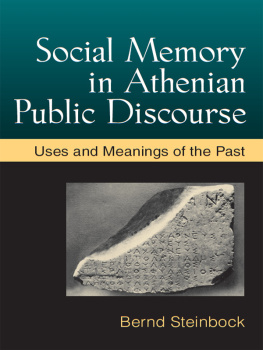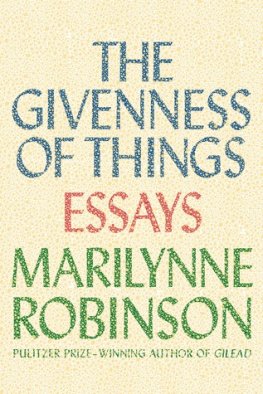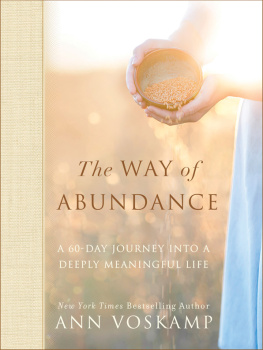Steinbock - It’s not about the gift : from givenness to loving
Here you can read online Steinbock - It’s not about the gift : from givenness to loving full text of the book (entire story) in english for free. Download pdf and epub, get meaning, cover and reviews about this ebook. year: 2018, publisher: Rowman & Littlefield International, genre: Religion. Description of the work, (preface) as well as reviews are available. Best literature library LitArk.com created for fans of good reading and offers a wide selection of genres:
Romance novel
Science fiction
Adventure
Detective
Science
History
Home and family
Prose
Art
Politics
Computer
Non-fiction
Religion
Business
Children
Humor
Choose a favorite category and find really read worthwhile books. Enjoy immersion in the world of imagination, feel the emotions of the characters or learn something new for yourself, make an fascinating discovery.
It’s not about the gift : from givenness to loving: summary, description and annotation
We offer to read an annotation, description, summary or preface (depends on what the author of the book "It’s not about the gift : from givenness to loving" wrote himself). If you haven't found the necessary information about the book — write in the comments, we will try to find it.
Steinbock: author's other books
Who wrote It’s not about the gift : from givenness to loving? Find out the surname, the name of the author of the book and a list of all author's works by series.
It’s not about the gift : from givenness to loving — read online for free the complete book (whole text) full work
Below is the text of the book, divided by pages. System saving the place of the last page read, allows you to conveniently read the book "It’s not about the gift : from givenness to loving" online for free, without having to search again every time where you left off. Put a bookmark, and you can go to the page where you finished reading at any time.
Font size:
Interval:
Bookmark:
Its Not about the Gift
Its Not about the Gift
From Givenness to Loving
Anthony J. Steinbock

London New York
Published by Rowman & Littlefield International, Ltd.
Unit A, Whitacre Mews, 26-34 Stannary Street, London SE11 4AB
www.rowmaninternational.com
Rowman & Littlefield International, Ltd. is an affiliate of
Rowman & Littlefield
4501 Forbes Boulevard, Suite 200, Lanham, Maryland 20706, USA
With additional offices in Boulder, New York, Toronto (Canada), and London (UK)
www.rowman.com
Copyright 2018 by Anthony J. Steinbock
All rights reserved. No part of this book may be reproduced in any form or by any electronic or mechanical means, including information storage and retrieval systems, without written permission from the publisher, except by a reviewer who may quote passages in a review.
British Library Cataloguing in Publication Information
A catalogue record for this book is available from the British Library
ISBN: HB 978-1-78660-825-3
ISBN: PB 978-1-78660-826-0
Library of Congress Cataloging-in-Publication Data
Names: Steinbock, Anthony J., author.
Title: It's not about the gift : from givenness to loving / Anthony J. Steinbock.
Description: Lanham : Rowman & Littlefield Publishers, 2018. | Includes bibliographical references and index.
Identifiers: LCCN 2018014822 (print) | LCCN 2018018768 (ebook) | ISBN 9781786608277 (Electronic) | ISBN 9781786608253 (cloth : alk. paper) | ISBN 9781786608260 (pbk. : alk. paper)
Subjects: LCSH: Generosity. | Gifts.
Classification: LCC BJ1533.G4 (ebook) | LCC BJ1533.G4 S74 2018 (print) | DDC 128/.4--dc23
LC record available at https://lccn.loc.gov/2018014822
 TM The paper used in this publication meets the minimum requirements of American National Standard for Information SciencesPermanence of Paper for Printed Library Materials, ANSI/NISO Z39.48-1992.
TM The paper used in this publication meets the minimum requirements of American National Standard for Information SciencesPermanence of Paper for Printed Library Materials, ANSI/NISO Z39.48-1992.
Printed in the United States of America
For my sister, Teresa
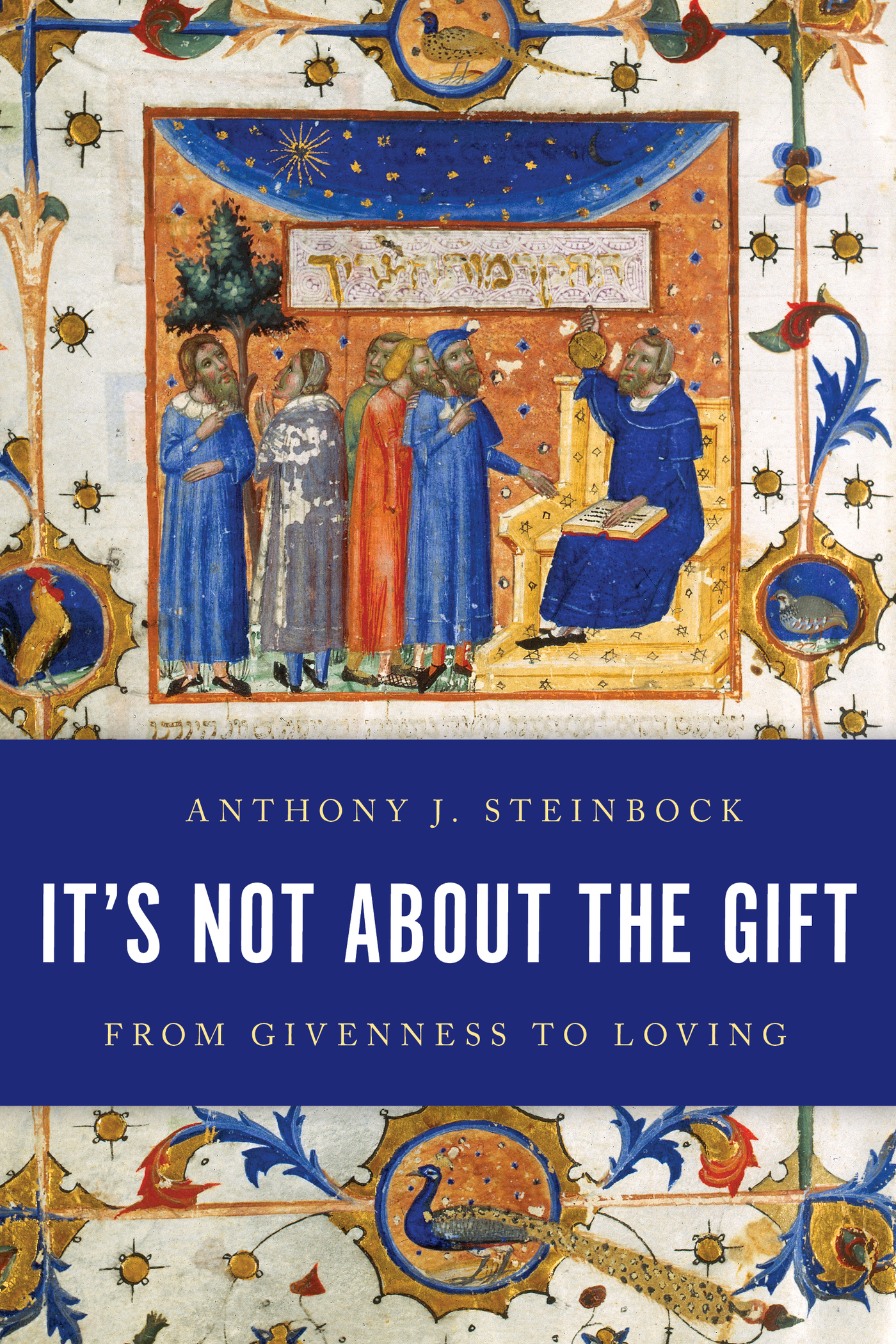
Its Not about the Gift is a strange title for a work that seems to deal explicitly with the problem of the gift. Certainly, the matter of the gift, of giving, of gift-giving is nothing new. We are long familiar with it from simple everyday exchanges with others (birthdays, Chanukah, Christmas, Eid, etc.), to practices of giving alms to the poor, to unspoken spontaneous acts of generosity, to stylized exercises of bonding in diverse cultures, to religious characterizations of God in the Abrahamic tradition.
In liberation theology, the gift and gift-giving are seen as challenges to capitalism because generosity contradicts the logic of capital.
Philosophically, the matter of the gift has assumed new proportions by virtue of the works of Jacques Derrida and, in particular, his reading of Marcel Mausss cultural anthropological study on the potlatch and the gift. Is the gift and gift-giving mired in the circulation of exchange, and for essential or structural reasons? Does the gift as such, which is completely unconditional, eclipse its own possibility in an essential economy? Ensuing discussions and debates between Derrida and Jean-Luc Marion on the given, the process of being-given, and the saturated phenomenon have further raised the stakes in these philosophical investigations bearing on the gift. They bring with them the broad swath of the phenomenological tradition, which they presuppose, and the pervasive phenomenological concept of givenness. In particular, they retrieve Heideggers thoughts on the Event, the It gives or Ereignis, and Husserls phenomenological reduction to givenness.
I do not wish simply to recapitulate these discussions, which are already established as the canon of contemporary literature on the gift. Nor do I intend to rehearse those trenchant commentaries that contributed for us their own decisive insights and advanced our understanding of the central issues surrounding the problematic of the gift. I do however want to take up some of these key figures in the discussion and propose the following: The discussions of the gift are really not about the gift, or should not be mistaken to be about the gift. The gift is not the point because the gift only becomes the gift in the context of interpersonal loving.
From a different angle, the gift becomes a gift in humility, which is how we receive ourselves in loving. Derrida is correct to this extent, namely, when the gift is the end of giving, it disappears as such; when it is the object of giving, it cannot appear. This does not mean for me, however, that the gift is the cipher of the impossible. Rather, the gift becomes what it is only when it is the surplus, excess, or remainder, as it were, of interpersonal loving and not the object of loving. Moreover, the gift fully becomes the gift in the intertwining of the religious, moral, and aesthetic dimensions of experience, as de-limited vertically, as opening to and inter-implicating these other dimensions in their distinctive ways.
It is only in what we could call a natural attitude perspective that the discussion of the gift is about the gift, and as if it were the entry point and the goal of the deliberations, as if the entire issue were self-evident, even in our so-called deconstructive or phenomenological analyses of the gift. What is unnoticed in all this discourse about the gift is that it is not about the gift. For the gift to have appeared at all, it could not have been about the gift. My peculiar position is to intervene in the talk of the gift through selective interpretations that approach the problems of the gift and givenness, with the proviso that it is not about the gift. More specifically, I intervene in the contemporary discussion of the gift through a set of critical readings in which I situate in each instance the gift in interpersonal and inter-Personal relations.
I ask the readers indulgence while I trace this problem of the gift through different styles, voices, approaches, and traditionsgoing from a phenomenological analysis, to expositions and critiques of Heidegger, Henry, Marion, Derrida, and in an admittedly curious move, back to Maimonides. The latter move is curious because this early medieval rabbinic scholar has not been part of this contemporary discussion. Yet it is Maimonides who offers us distinctions and discernments that bring the contemporary conversation forward. The guiding thread running through these accounts is the insight that what is at stake in the gift is our relation with others. Our relations with others are revealed in many ways, interpersonally, in what I have called moral emotions, but most profoundly through loving. By loving, I understand a dynamic movement toward the emergence and flourishing of what is possible within this movement of being-becoming, given through value. Loving as movement is an improvisational, free, creative, positive affirmation, as generative of and beyond the givens in a personal manner. Loving then participates the other such that what is given is already revealed as beloved.
I treat the phenomena of loving, hating, and the beloved in a subsequent work. Here, I want to move from the gift to loving (loving, from which the gift originally emerges) in the following way. By offering a careful phenomenological analysis of the experience of surprise, I tease apart the gift from how it is usually accepted as tied to the surprise. Chapter 1 works through the ways in which the emotion of surprise accepts reality, believing what I cannot believe, articulating its temporal presuppositions of expectation and suggesting that the gift becomes the gift, not by being surprising, but by it being received in the moral emotion of humility. Humility, which is not given in a direct first-person reflection, is the way that the gift becomes gift without its being the object of an intention. Humility is the way in which I receive myself in lovingwithout I, Myself becoming an object of the reception, or the gift becoming the object of interpersonal loving.
Next pageFont size:
Interval:
Bookmark:
Similar books «It’s not about the gift : from givenness to loving»
Look at similar books to It’s not about the gift : from givenness to loving. We have selected literature similar in name and meaning in the hope of providing readers with more options to find new, interesting, not yet read works.
Discussion, reviews of the book It’s not about the gift : from givenness to loving and just readers' own opinions. Leave your comments, write what you think about the work, its meaning or the main characters. Specify what exactly you liked and what you didn't like, and why you think so.

